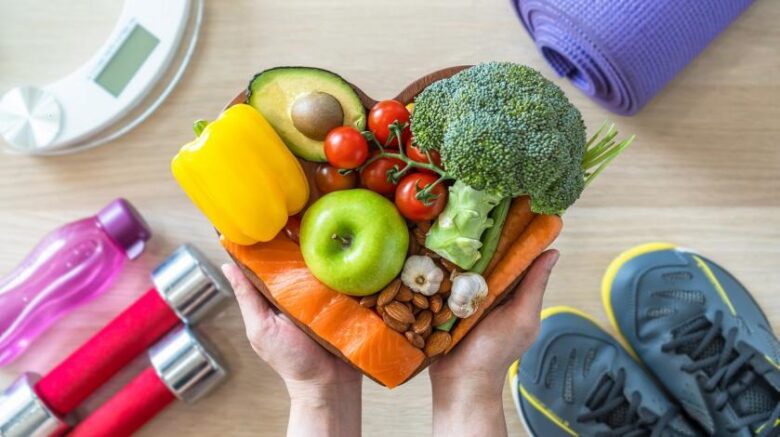Living a balanced lifestyle is about more than just occasional healthy choices; it’s about creating sustainable habits that support your physical and mental well-being. It involves a holistic approach, where nutrition, exercise, mental health, sleep, and hydration work together to help you feel your best. This guide will walk you through the essential pillars of a balanced life, offering practical advice to help you build a healthier, happier you.
Nutritional Foundations
What you eat forms the foundation of your overall health. A balanced diet provides the energy you need for daily activities and the nutrients required for your body to function correctly. Think of your body as a high-performance machine; it needs premium fuel to operate at its peak. This means incorporating various whole foods into your meals, including lean proteins, whole grains, healthy fats, and an abundance of fruits and vegetables. These foods supply essential vitamins and minerals that support everything from your immune system to your brain function. Reducing processed foods, sugary drinks, and excessive unhealthy fats can significantly improve your energy levels and reduce your risk of chronic diseases.
The Importance of Regular Exercise
Physical activity is a critical component of a healthy lifestyle. Regular exercise not only helps with weight management but also strengthens your bones and muscles, improves cardiovascular health, and boosts your mood. The key is to discover activities you enjoy, which makes it easier to stay consistent. This doesn’t mean you have to spend hours at the gym every day. It could be a brisk walk, a bike ride, a dance class, or a yoga session. The goal is to aim for at least 150 minutes of moderate-intensity exercise per week, as recommended by health experts. Consistent physical activity releases endorphins, which are natural mood lifters, helping to reduce stress and anxiety while promoting a sense of well-being.
Prioritizing Mental Well-being
A balanced lifestyle isn’t just about physical health; your mental and emotional well-being are equally important. Stress, anxiety, and other mental health challenges can take a toll on your physical health if left unaddressed. It’s essential to practice self-care and incorporate activities that help you relax and recharge. This could include mindfulness, meditation, journaling, or spending time in nature. Connecting with loved ones and maintaining strong social relationships also plays a crucial role in supporting your mental health. Don’t be afraid to seek professional help if you’re struggling. Talking to a therapist can provide you with valuable tools to manage your mental health effectively.
The Role of Sleep and Rest
Sleep is when your body repairs and rejuvenates itself. A lack of quality sleep can negatively impact your mood, cognitive function, and physical health. Most adults need between 7 and 9 hours of sleep per night to function optimally. To improve your sleep quality, establish a regular sleep schedule, create a relaxing bedtime routine, and make sure your bedroom is dark, quiet, and cool. Avoid screens, caffeine, and heavy meals close to bedtime, as they can interfere with your ability to fall asleep. Making sleep a priority is one of the most effective things you can do to support a balanced lifestyle.
Hydration is Key
Water is essential for nearly every bodily function, from regulating temperature to transporting nutrients. Staying properly hydrated can improve your energy levels, support brain function, and keep your skin healthy. While the amount of water you need can vary based on factors like age and activity level, a general guideline is to drink at least eight 8-ounce glasses a day. If you find it challenging to drink enough water, try carrying a reusable water bottle, adding natural flavors like lemon or cucumber, or eating water-rich foods like fruits and vegetables.
Building a Healthier You
Achieving a balanced lifestyle is a journey, not a destination. It’s about making small, consistent changes that add up over time. By focusing on these core health essentials—nutrition, exercise, mental well-being, sleep, and hydration—you can create a sustainable foundation for a healthier and more fulfilling life. Start by incorporating one or two new habits and build from there.
FAQs
1. How can I start eating healthier if I have a busy schedule?
Begin by planning your meals for the week and preparing healthy snacks in advance. Focus on simple, quick recipes that use whole foods. Services that deliver groceries or pre-portioned meal kits can also save you time.
2. What’s the best type of exercise for beginners?
The best exercise is one you enjoy and will stick with. Walking is an excellent starting point because it’s low-impact and requires no special equipment. You can also try activities like swimming, cycling, or beginner-level yoga classes.
3. How can I practice mindfulness if I don’t have much time?
Mindfulness can be practiced in just a few minutes a day. Try starting with a 5-minute guided meditation using an app, or simply focus on your breath for a few moments when you feel stressed.
4. What are some signs that I’m not getting enough sleep?
Common signs of sleep deprivation include feeling drained throughout the day, irritability, difficulty concentrating, and relying on caffeine to stay awake. If you experience these symptoms regularly, you may need to prioritize getting more sleep.
5. Does drinking coffee or tea count towards my daily hydration?
While caffeinated beverages contain water, they can also have a diuretic effect. It’s best to prioritize plain water for hydration. You can supplement with herbal teas and water-rich foods to meet your daily needs.




